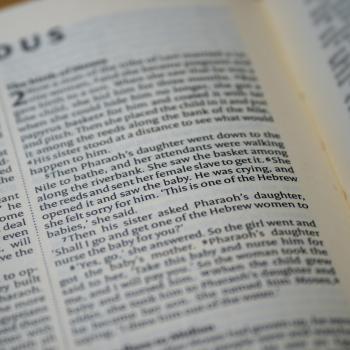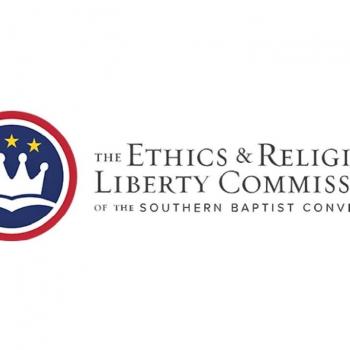One of the more interesting conundrums of our times is the notion of virtue and ethics within progressive circles. The reason I say this is relatively simple to any who have observed what has transpired over the course of the last couple of decades. Progressive ethics are always in flux; they are ever searching for a new, deeper sense of morality that ebbs and flows with the ideological whims of the broader culture. What I mean by that is simply that the only absolute truth with which they approach the topic of ethics is that there is no absolute truth. There is no ideal state or understanding of morality, save that it progresses with the times, nor is there a point in which an historical understanding of ethics sheds light on why we do the things we do or believe the things we believe.
This is particularly why we see many devour those within their own circles of progressivism. Take, for example, the popular notion of transgenderism, in that it is not something fundamentally wrong at its core level, because gender is a social construct. Gender, in other words, is what the individual believes it can be. It is malleable. It is not a fixed reality with which one must comport, but rather, something that the world must comport to if an individual believes they are not in harmony with the sex they were born into. The individual believes that the absolute truth of their purported gender identity dictates nature, rather than nature dictating their true gender.
Those who believe the opposite, that gender is not in flux, nor subject to the whimsy of how that particular individual feels from day to day, are those with antiquated beliefs. They have not progressed with the times, and they are therefore immoral according to the standard of the day. The interesting dilemma in this though is that the same arbitrary standard can applied by subsequent generations—and this is precisely what we have seen when you have a classic feminist take issue with the fact that a biological male is entering space where females are to reign supreme. Men can give makeup tutorials and don the mantle of “Woman of the Year,” and according to the current progressive ethic, this is good. Men can enter into the arena of women’s sports, Harry Styles can wear drag, and so on and so forth, and so long as this is morally acceptable within the progressive ethic at that time, it is to be applauded.
The classic feminist rightly takes issue with this, but she too has held on to the vestiges of an oppressive, antiquated system of beliefs that hasn’t progressed with the times, even though she once scored an “A” for her feminist beliefs just ten years prior. However, that same standard will be applicable for those who adopt the current ethical stance of progressives today if they don’t keep in lockstep with where the culture moves. In other words: you must continue to progress, because there is no ideal ethical or moral stance at which one can arrive. The inherent problem with this is that it presupposes just that: there is no ideal ethical stance one can arrive at. There is no terminal point. There are no real standards or ideals people can attain to. The only thing they can do is continue to advance with the times because the fundamental assumption is that past beliefs are unethical, antiquated, or insufficient in some manner.
The only virtue then is progress itself, whatever that may look like. I would argue that those leading the way in this system of “virtue” do in fact have an ideal standard they are working towards—but the delicious irony of it all is that someone else comes along and sets a new ideal standard simply because the common ethos is progress. The vast majority of people don’t think through these issues in any meaningful sense, and that can be said of all groups along the ideological spectrum—but the point I am trying to make is simply that without an understanding of transcendent moral and ethical truths, principles, and implications, the best a progressive ethic can muster is a severe case of chronological snobbery.
This is where I think conservatives have hit the nail on the proverbial head with calling out the slippery slope of progressive ethics, and progressives have subsequently floundered. In multiple instances, conservatives have rightly highlighted the implications of certain judicial and social beliefs, meaning they have correctly identified that these ideas and the subsequent decisions made in light of them have consequences. On an anecdotal level, we innately recognize that ideas and the implementation of ideas have consequences. All will recognize that if I have the half-brained idea that I can lie, cheat, and steal in my employment, that will naturally bear punitive consequences, which will more than likely result in my unemployment, and possibly even jail time. The more pernicious my beliefs, the stricter the natural and judicial consequences are to those said beliefs.
Left unchecked, unhealthy and immoral ideas lead to all sorts of debauchery, not simply on a personal level, but a social level. In other words, the oft claimed “if it doesn’t affect you personally, you shouldn’t care” is a blatant non-sequitur, because these practices and ideals shape the fabric of society. Progressives know this though because they seek to work within the channels of our institutions (e.g. academia, government, etc.) to effect the changes they want to see—and this is where many conservatives have failed. By very nature, the ideal of conservatives is to conserve, but when you are constantly on the defense against continual, subjective progress, the only thing you are conserving is what is deemed conservative in that particular time. The goalposts continually shift, further ground is conceded, and the inevitable outcome is that the conservative seeks to retain what new ground they’ve found foisted upon them.
This is why we’ve also seen that the conservatives of today are more often than not lacking conservativism in the original sense of that word. In a sense, many conservatives today are likewise progressives, owing to the fact that they too have shifted from an objective moral and ethical standard that informs their practices, voting, and more. The problem I am identifying then is that all such forms of progressive ethics are a slippery slope, even if the incline of the slope and the rate at which the ball rolls down the proverbial hill is different than another.
What I am arguing for then is that if we are true conservatives, especially ones who desire to be faithful to the Scriptures and the historic Christian faith, we cannot be lulled into accepting a progressive ethic that while more conservative than its peers, fails to recapture the foundation of conservativism. For conservative Christians, this becomes an altogether different reality when we consider the foundations of our faith. Christians have something distinct and unique among all the peoples of the earth; we have a genuine, transcendent set of beliefs and a worldview that should comport with such beliefs, and we ultimately find this in Scripture. Thus, Scripture should inform how we view things like basic social structures, governance, the workplace, familial ties, institutional enterprises, and even things like schooling our children.
To put that as clearly as possible, we have a comprehensive, consistent, and clear directive from Scripture that is to inform all facets of life—and a rather large part of the problem is that we’ve bifurcated life as if it does indeed follow the secular/sacred divide that our culture is so fond of lifting up as a virtue in and of itself. We have, at least in part, abandoned a holistic understanding of how the Christian faith is to permeate every seemingly insignificant detail of life as we know it. Additionally, we believe this to be good, namely, because this Christian faith is not only sufficient for addressing the common plight of all mankind (i.e. salvation before a holy and righteous Lord), but all of life.
I once would have said it would be easy for many professing Christians, especially traditionally conservative ones, to understand how progressive ideals are at odds with the historic faith. It is, after all, a misnomer to suggest that one continues to “progress” beyond the finite, transcendent truths given to us by God Himself; this is what makes Progressive Christianity such an intellectually, morally, and spiritually disingenuous movement in so many ways. However, given more recent trends with gender roles, Black Lives Matter, Intersectionality, how we ought to navigate things like the recent pandemic and all that has unraveled, and even the lost mores of churches in an effort to appease younger, liberally-minded people, I am no longer convinced this is the case. I am increasingly convinced that many have adopted a two-tier framework through which they view the world, where the secular/sacred divide is adopted, yet all the while people have confused this as if it is truly a comprehensive, biblical worldview.
To make that plain, I am convinced many within the broader church have been pressed into the mold of a system of thought the broader culture adopts (i.e. progressivism), and I believe the foremost institution this has been accomplished through is education. Generations of children have come and gone through this institution, which is built upon the ideals of secularism, and integrated with society without much thought to God Himself. It is this characteristic “mindlessness” of God then that has wrought what we now see in our culture, and particularly, what the apostle Paul informs us is a key indication of the wrath of God being poured out upon humanity in Romans 1. In much the same vein then, what is perpetuated from generation to generation is a set of progressive ideals, where inventors of evil find much creative space to do just that.
Thus, the question remains: how do we solve this dilemma, even if many conservative Christians don’t quite understand this reality? The answer is surprisingly simple and unflatteringly naïve to the world, and even many professing Christians. We return to a fidelity to the Word of God. We Protestants especially return to our common confession that Scripture is the norm that norms all other norms. It is quite in vogue today, especially in broader Christian circles (and here by “Christian” I mean the broader Christian tradition, rather than necessarily those who have genuine, saving faith) to downplay, minimize, or outright reject the authority of Scripture.
Yet our ideals are not to conserve what grounds may be foisted upon us, but to reclaim the territory which has always been ours in Christ. We are not conservatives in the modern sense, in that we shift with the tides of culture, be it the broader secular culture or even the broader Christian culture. Rather, we simply proclaim the excellencies of Christ and Him crucified, and the historic faith that was handed down to the saints once and for all. For practical purposes, that entails being able to know what this historic faith actually is, yet more than this, to boldly go forth in carrying out the mandates of this body of knowledge, from Genesis to Revelation. In other words, we live consistently to the message we proclaim, from the seemingly mundane choices we make in entertainment, to how we spend our money, raise and teach our children, participate in the lifeblood of the local church, and more.
In a sense, we return to the Puritan ethic, which is simply the ethos of the apostle Paul, where all of life is seen as the enterprise through which we can glorify God and enjoy Him forever. The means by which we do that is simple: we must know who this God is and how we can enjoy Him forever, which is only derived from a robust understanding and application of Scripture. Thus, when we are faced with whatever progressive ideals might creep in, the principle is one whereby we test all things according to Scripture.













